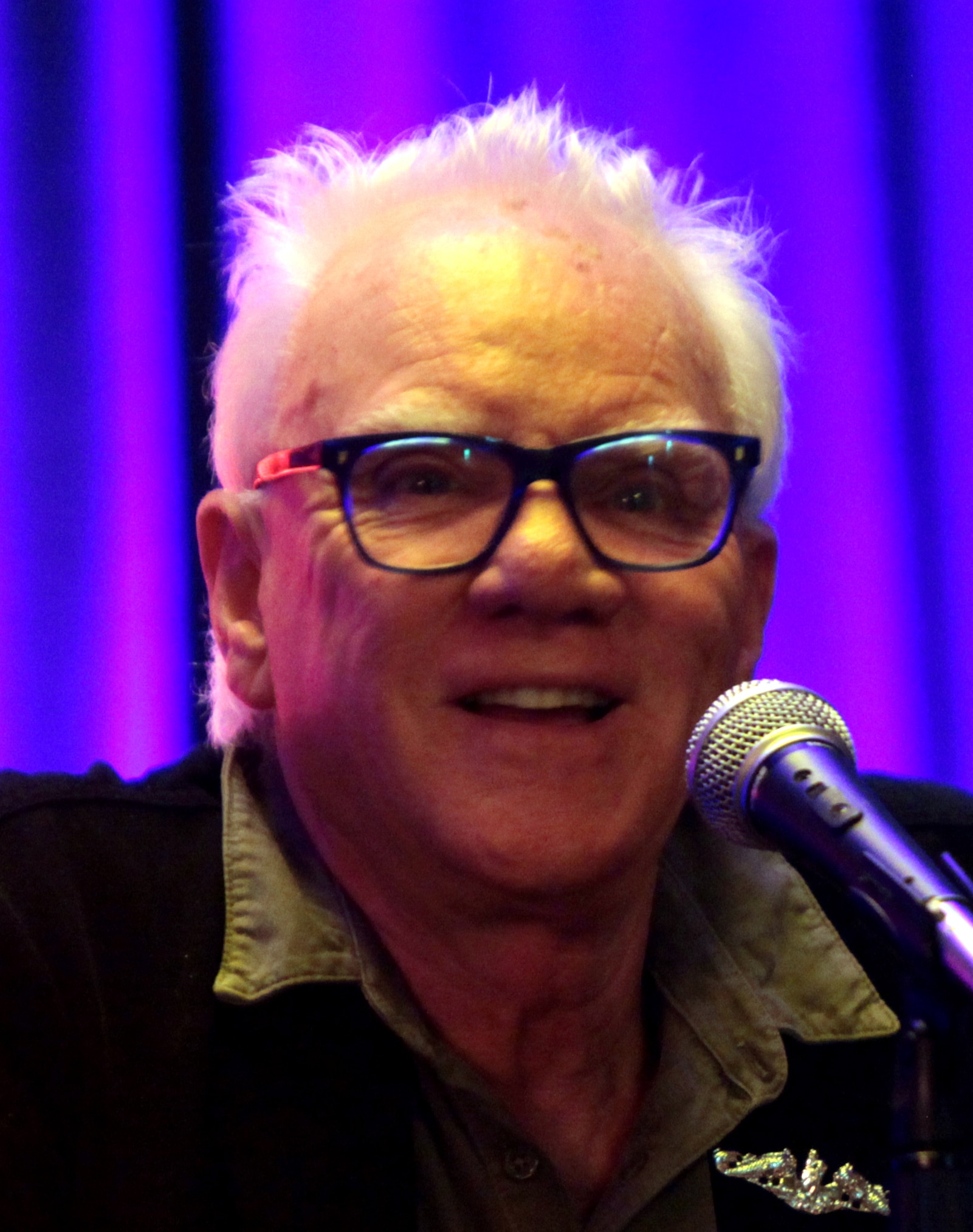 BBC News
BBC NewsBorrowing was £17.4bn last month, the second highest October figure since monthly records began in 1993.

Christopher Jackson hears from Malcom McDowell about his career in film
Malcolm McDowell is talking to me from what looks like a spacious octagonal attic, the dark at the window behind him shows no stars. He is wearing splendid Ronnie Barker specs and a black hoodie, his white hair tufted behind a domed forehead.
It’s not that far in the scheme of things from Christmas and he is immediately humorous about the predicament. “My God, I’ve seen enough of those. Here we go again!” Then he lets a pause go by which wouldn’t be out of place in a Harold Pinter play. “But the kids love it, don’t they?”
Here’s happy to discuss his work, and understanding when A Clockwork Orange (1971) immediately comes up: ”I am thrilled to talk to fans – about anything really, but especially that film which I suppose you might say is the jewel in the crown of my career.” He says this without a trace of pomposity, even somewhat humorously: he seems to be one of those rare actors who doesn’t necessarily consider himself the centre of the universe.
In the same vein he continues sincerely: “Without the fans, I wouldn’t have a career: neither would any of us. The fans are very important and I always have time to say hello to fans.”
His list of notable credits, of course, is far greater than just A Clockwork Orange and includes Caligula (1979), Cat People (1982), Star Trek Generations (1992), and The Artist (2011).
But it’s A Clockwork Orange which has most endured, partly due to its sheer quality, and also because it’s the work of what we might call mid-period Stanley Kubrick, at a time when his films become scarcer and therefore more precious.
McDowell is exceptionally forthcoming and relaxed about talking about something which he will have been asked about numerous times. He will be no stranger to being asked about the scene where Alex and the droogs kicks the poor tramp. It is the film’s anarchic streak which has endured: its author, the polymathic Anthony Burgess, intuited that the brakes on traditional morality would been an outpouring of violence, which we see on our screens now day in day out.
But did McDowell ever meet Burgess? “After we shot the movie and it opened, I went during the first week of the opening to New York. That was when I met for the first time with Anthony Burgess who wrote the book.”
So he hadn’t ever met him set. McDowell says: “I’d never met him before – I wasn’t allowed to meet him. I guess Stanley didn’t want me to be influenced by the writer. Writers on film are really just complications we could do without.”
This is a lovely detail about Kubrick, who was famously meticulous in the compilation of his movies. What can certainly imagine that a literary titan on set might be one titan too many. It is a window to the hierarchy of the movies which may look topsy-turvy for Burgess fans.
Then McDowell launches into an astonishing anecdote: “I asked burgess in New York about the phrase ‘a clockwork orange’ and he came upon the title.”
I am craned forward, faintly astonished to be hearing this little piece of literary history unbidden. McDowell continues: “He told me he was in an East End pub in London and he was sitting next to a friend of his and they were chatting. Suddenly the door opened and this strange-looking guy comes in and his friend looked at him and said: “He’s as queer as a clockwork orange.’”
Many people think authors should look up in a deep trance from their desks to find inspiration, and perhaps that is sometimes the case. But McDowell’s anecdote reminds us they should also go down the pub.” Burgess said : ‘I just loved the sound of that phrase and I thought it would make a good title for a book some time.’ Which indeed it did.”
That’s some understatement but McDowell isn’t finished yet. He finishes: “So I said to Burgess: ‘Yeah but what does it mean? He said: “I don’t know. I think it just means look at this guy, he’s really strange and odd – as queer as a clockwork orange.”
Having changed my understanding of a small but important nook of 210th century literary history, McDowell finishes. “So there you are, you have it from the chief orange himself.”
It was Henry James who said a writer should be the sort of person who notices things. This can be the case. But young writers should know that what you really need to do is be able to identify a certain charge which useful things have – sometimes things will leap up and say they want to be a name in your novel, a setting, a scene – or perhaps a title to the book you may just get around to writing one day.